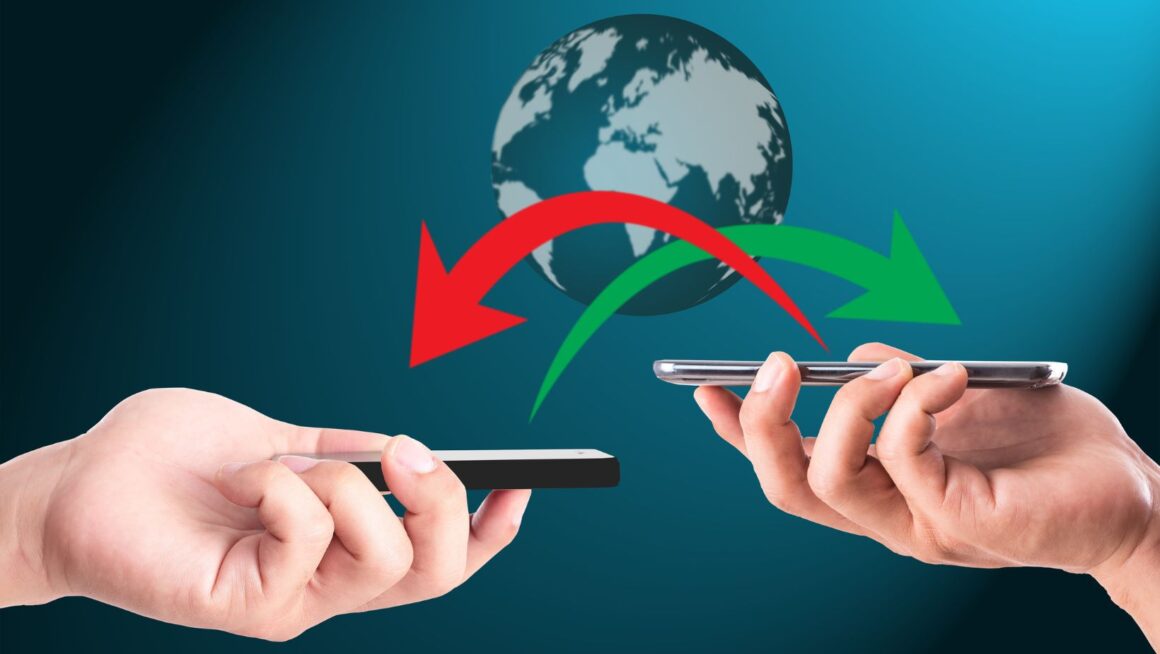Nigeria is at the forefront of a financial revolution driven by a combination of rapid technological advancements and the increasing needs of its global diaspora. Every year, millions of Nigerians living abroad send billions of dollars back home, with remittances contributing significantly to the nation’s GDP. Yet, the process of sending money has not been without challenges. From high fees to long processing times, these barriers have long been a source of frustration. However, recent innovations are rewriting the narrative, making it easier than ever to send money to Nigeria.
A New Era of Money Transfers
Historically, traditional banks and money transfer services dominated the remittance market. While reliable, they often came with steep fees, unfavorable exchange rates, and delays in delivery. Today, the rise of digital platforms and fintech companies is disrupting this space, offering faster, cheaper, and more accessible solutions.
One groundbreaking innovation is the use of blockchain technology. Blockchain-based platforms like BitPesa and Paxful provide a transparent and secure method of transferring funds. By eliminating intermediaries, these services reduce costs and ensure near-instant transactions. This is particularly beneficial for Nigerians in countries with limited access to traditional banking infrastructure.
Mobile money systems are another game-changer. Services like OPay, PalmPay, and Paga allow recipients to access funds directly through their smartphones. These platforms are bridging the gap between the unbanked population and the digital economy, making financial inclusion a reality for millions.
The Role of Remittances in Nigeria’s Economy
Remittances to Nigeria exceeded $20 billion in recent years, making it one of the largest recipients of such funds in Africa. These inflows are not just numbers—they are lifelines. For families, remittances cover essential expenses such as food, education, and healthcare. For entrepreneurs, they provide much-needed capital to start or expand businesses. At the national level, remittances are a critical source of foreign exchange, helping to stabilize the naira and support economic growth.

Interestingly, remittances also play a role in disaster relief and recovery. When floods, pandemics, or other crises strike, funds sent from abroad often serve as immediate financial assistance for affected families and communities. This underscores the importance of maintaining efficient and accessible money transfer systems.
Challenges and Solutions in the Money Transfer Landscape
Despite the progress, sending money to Nigeria is not without its challenges. High fees remain a concern, with some providers charging up to 10% of the transaction amount. Exchange rate discrepancies further reduce the value of remittances, leaving recipients with less than anticipated. Additionally, regulatory complexities can delay transactions or impose restrictions on the amount of money that can be sent.
To address these issues, governments and international organizations are stepping in. The Central Bank of Nigeria’s “Naira 4 Dollar Scheme,” for example, incentivizes remittances by offering recipients a bonus for every dollar sent through official channels. Similarly, global initiatives are pushing for transparency in transfer fees and exchange rates, empowering consumers to make informed choices.
A Look Ahead: The Future of Money Transfers to Nigeria
As technology continues to evolve, the future of remittances to Nigeria looks promising. Artificial intelligence and machine learning are being used to predict currency trends and optimize transfer routes, ensuring better rates and faster transactions.

Peer-to-peer platforms are enabling direct transfers between individuals, cutting out the middleman entirely. Additionally, partnerships between fintech companies and traditional banks are expanding access to underbanked regions, further democratizing the remittance process.
Conclusion
Sending money to Nigeria is no longer a cumbersome process riddled with obstacles. Innovations in technology, combined with regulatory efforts and the entrepreneurial spirit of Nigerians, are transforming the remittance landscape. As these changes unfold, the impact will be felt far beyond individual transactions—strengthening families, empowering communities, and driving national progress.
For those looking to send money to Nigeria, the message is clear: the tools are better, the costs are lower, and the opportunities to make a difference are greater than ever before.

